Last Updated on September 30, 2023
Seeking safe alternatives to commercial ant repellents?
These 15 natural remedies for ants offer easy solutions for keeping ants away from your home and garden.
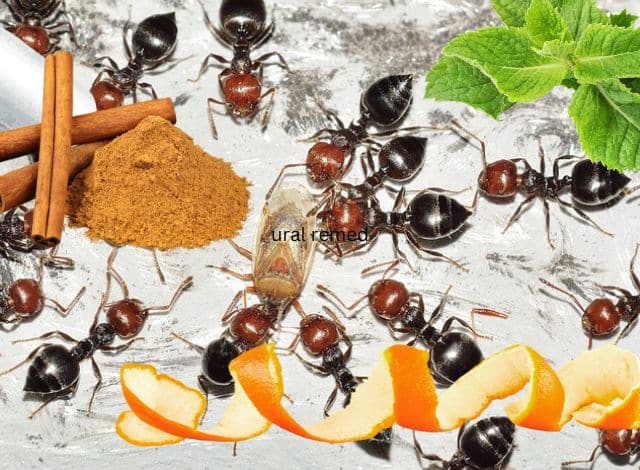
Ants are remarkable insects with a well-organized social structure, but they are a significant nuisance when they invade your home or garden.
While commercial ant repellents are readily available, many contain chemicals that can be harmful to your family, pets, and the environment.
If you’re looking for safer and more natural alternatives to deal with these tiny intruders, let’s explore natural remedies for ants that can help you maintain a pest-free environment without resorting to harsh chemicals.
All the ingredients listed in this article for natural and effective pest control are safe and readily available, most likely already in your home.
*This post contains affiliate links. If you choose to purchase any of the products I have recommended, I may receive a commission at no cost to you.
Top 15 Natural remedies for Ants
1. Vinegar and Dish Soap Spray

How to Use: Combine equal parts white vinegar and liquid dish soap in a spray bottle. Spray this mixture directly onto ants or along their trails.
Why it Works: The soap disrupts the ants’ cell membranes, while the vinegar disrupts their pheromone trails, effectively eliminating them.
2. Baking Soda and Powdered Sugar Trap

How to Use: Create a mixture of equal parts baking soda and powdered sugar and place it in shallow containers near ant-infested areas. The ants will be attracted to the sugar but killed by the baking soda when they consume it.
Why it Works: Ants are drawn to sweet substances, and this bait lures them in while the baking soda disrupts their digestive system.
3. Orange Oil

How to Use: Orange oil, derived from orange peels, is a potent ant repellent. Mix a few drops of orange essential oil with water in a spray bottle and apply it to ant-prone areas, such as entry points, windowsills, and countertops. You can also add a few drops of orange oil to a cotton ball and place it near ant trails.
Why it Works: The strong scent of orange oil is highly effective in deterring ants, disrupting their pheromone trails, and preventing them from entering your living spaces.
Alternatively, you can scatter citrus peels from oranges, lemons or grapefruits around entry points where ants are likely to enter your home or around garden beds.
4. Ground Cinnamon

How to Use: Sprinkle ground cinnamon along ant trails or near their entry points.
Why it Works: Cinnamon’s strong aroma acts as a natural ant repellent, disrupting their scent trail.
5. Peppermint Oil
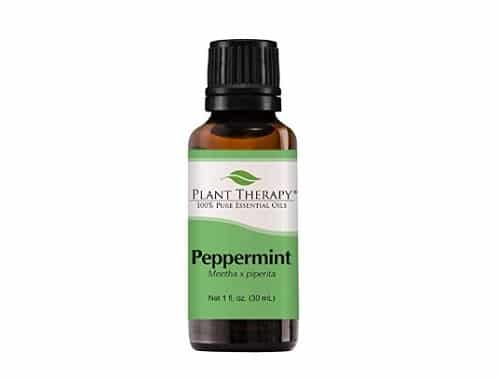
How to Use: Mix a few drops of peppermint essential oil with water in a spray bottle and apply it to areas prone to ant activity.
Why it Works: The strong scent of peppermint oil is known to deter ants, keeping them away from your home.
6. Diatomaceous Earth (DE)

How to Use: Sprinkle food-grade diatomaceous earth around ant-infested areas. Be cautious not to inhale the dust during application.
Why it Works: DE is a natural, abrasive substance that damages ants’ exoskeletons, dehydrating and eventually killing them.
7. Basil

How to Use: Plant basil around your garden or keep potted basil plants near windows or doors to deter ants from entering.
Why it Works: The pungent aroma of basil is a natural ant repellent, helping to keep them away from your living spaces.
8. Cayenne Pepper Powder

How to Use: Sprinkle a generous amount of cayenne pepper powder along ant trails, entry points, and areas where ants are active.
Why it Works: Cayenne pepper contains a compound called capsaicin, which ants find unbearable. It disrupts their scent trails and causes discomfort, encouraging them to avoid areas treated with cayenne pepper.
Cayenne pepper is not only a fantastic addition to your culinary creations but also a natural ant repellent that can help you keep these pests out of your living spaces. Use it sparingly but strategically to deter ants effectively.
9. Dried Bay Leaves
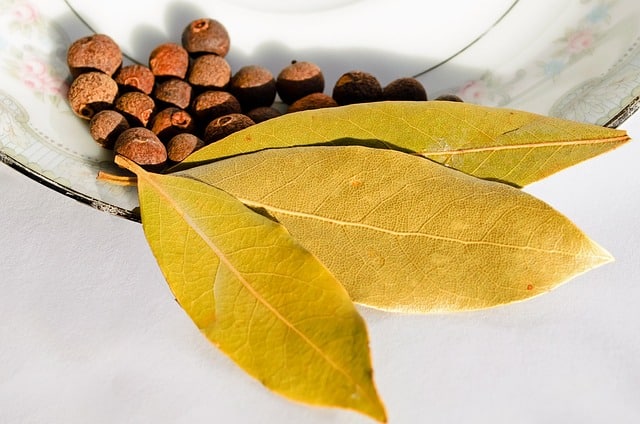
How to Use: Place dried bay leaves in pantry shelves, cabinets, or near entry points to keep ants away.
Why it Works: Bay leaves contain compounds that are highly repellent to ants.
10. Coffee Grounds
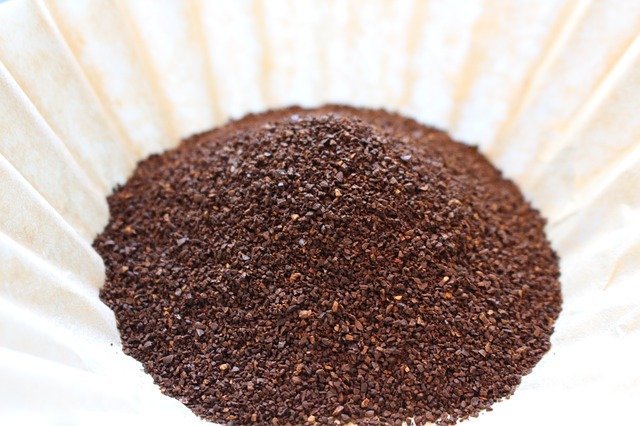
How to Use: Sprinkle used coffee grounds in areas where ants are active.
Why it Works: The scent of coffee grounds is a natural ant repellent, and the texture can deter them from crossing the area.
11. Cornmeal

How to Use: Sprinkle cornmeal near ant trails or potential entry points.
Why it Works: When ants consume cornmeal and then drink water, the cornmeal expands in their stomachs, ultimately leading to their demise.
12. Wintergreen Oil

How to Use: Wintergreen oil, derived from the leaves of the wintergreen plant, can be a highly effective natural deterrent for ants. Mix a few drops of wintergreen essential oil with water in a spray bottle and apply it to ant-prone areas, such as entry points, windowsills, and countertops.
Why it Works: Wintergreen oil possesses a strong, minty aroma that ants find particularly repellent. This potent scent disrupts their pheromone trails, creating an invisible barrier that discourages them from venturing further into your living spaces.
13. Chalk

How to Use: Draw lines with chalk around entry points or areas where ants are present.
Why it Works: Chalk contains calcium carbonate, which ants are averse to. It acts as a natural barrier, deterring them from crossing.
By incorporating these additional natural remedies for ants into your pest control strategy, you can maintain a peaceful and ant-free environment without the need for harmful chemicals. Remember to be patient and consistent in your efforts, and you’ll effectively keep these tiny invaders at bay.
14. Lavender

How to Use: Plant lavender bushes or scatter dried lavender flowers in places where ants tend to gather.
Why it Works: Lavender emits a sweet fragrance that humans love but ants dislike. It not only keeps ants at bay but also adds a pleasant aroma to your surroundings.
These additional herbs offer natural and aromatic solutions for keeping ants away from your home and garden. Incorporate them into your pest management routine to maintain an ant-free environment while enjoying the benefits of these delightful herbs.
15. Cucumber Slices
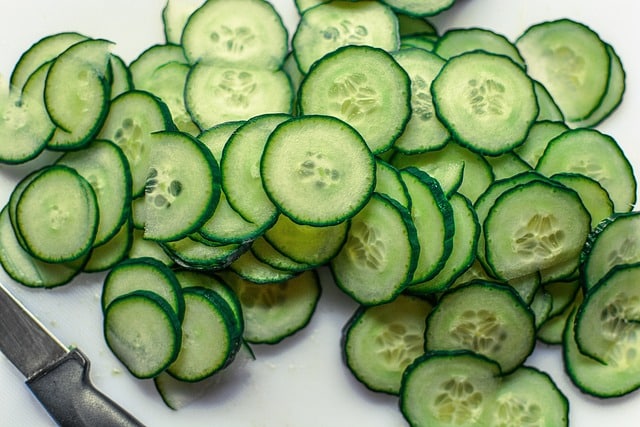
How to Use: Place cucumber slices or peels near ant entry points or areas of infestation.
Why it Works: Ants tend to avoid areas with cucumber slices due to their aversion to the bitter compounds found in cucumbers. However, it’s important to note that the effect may not be long-lasting.
Related reading:
- How to keep bugs from eating your plant – 15 natural ways (DIY style!)
- Top 9 cat repellent plants
- Most safe commercial organic pesticides for your vegetable garden and orchard
- 10 Common crop pests: how to identify and control them
- 12 Natural remedies for hair growth
- 40 herbs for your garden
Check out more articles about natural pest control
Learn more tips on natural remedies and herbs
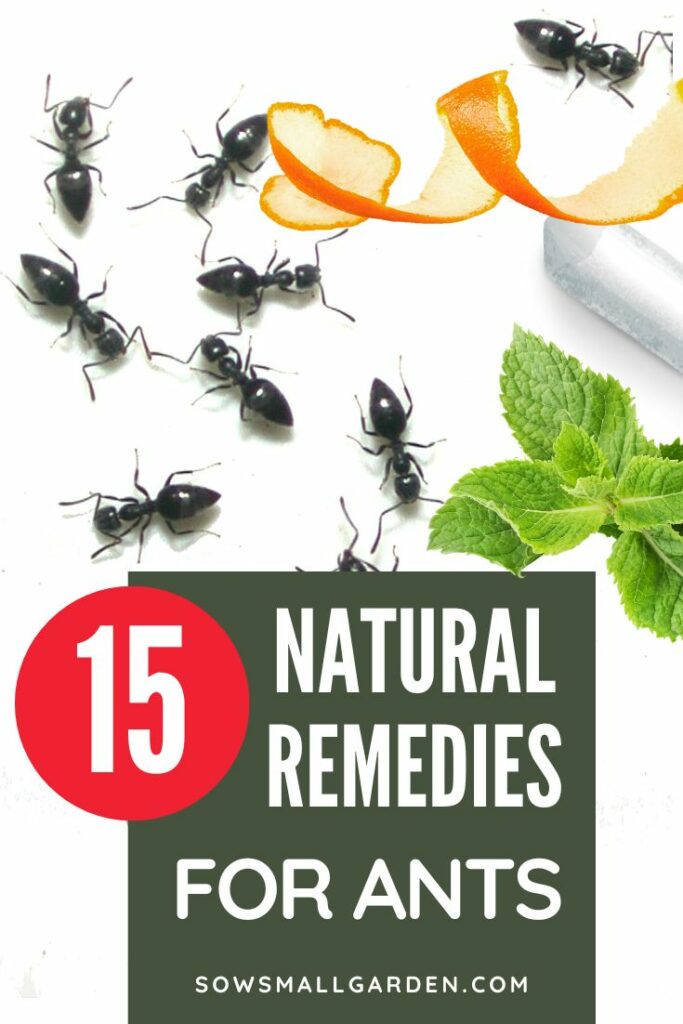
Final thoughts on natural remedies for ants
Dealing with ants doesn’t have to involve harsh chemicals that can harm your health or the environment. These natural remedies for ants provide effective solutions for pest control, allowing you to keep your home and garden ant-free using safe, readily available ingredients. Remember that consistency in applying these remedies is key to achieving the best results. So, the next time ants march into your space, consider trying these natural alternatives for a pest-free environment.
By incorporating these natural remedies for ants into your natural pest control strategy, you can effectively deter ants from entering your living spaces
You have read:




